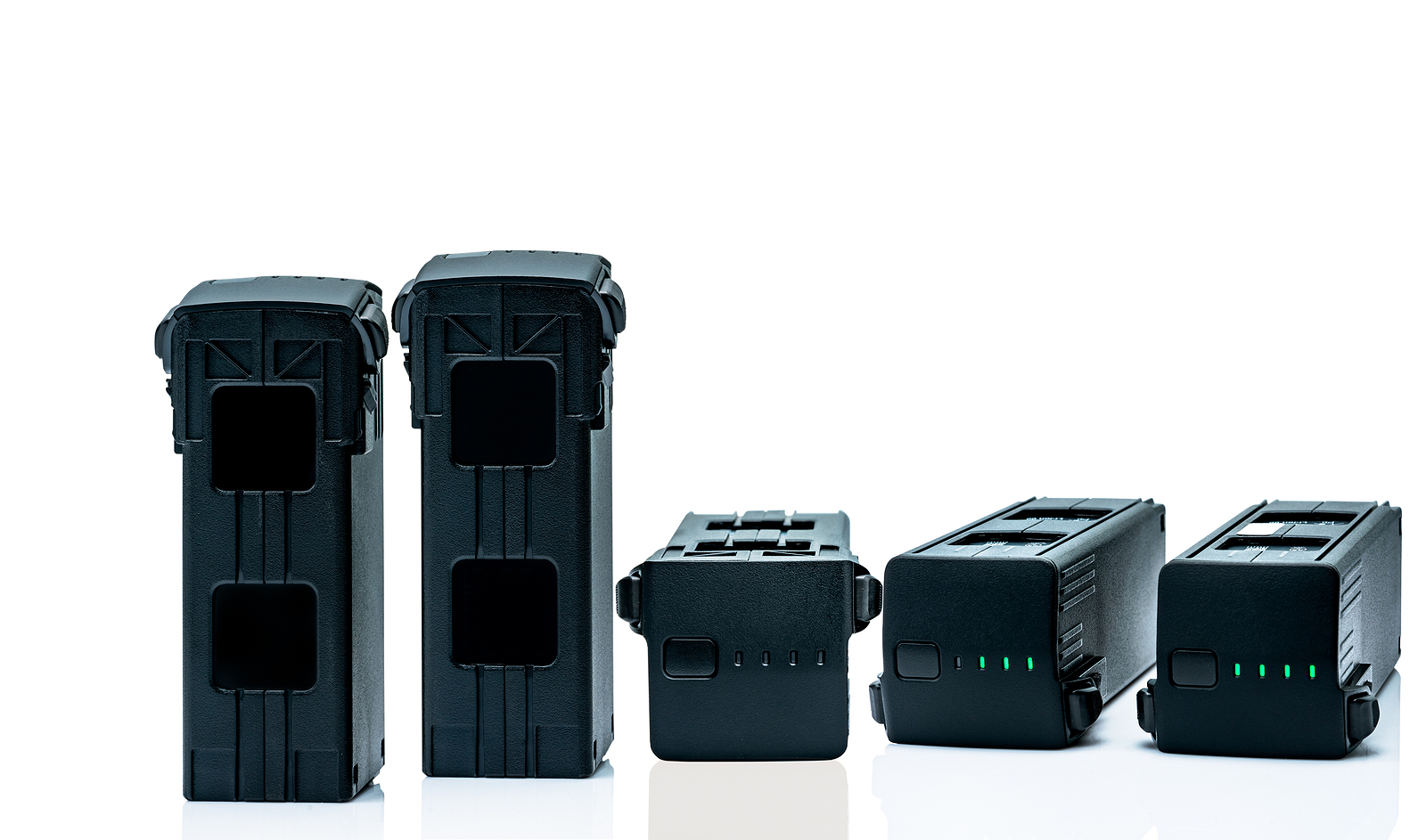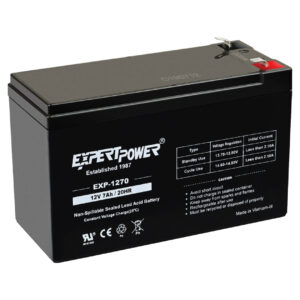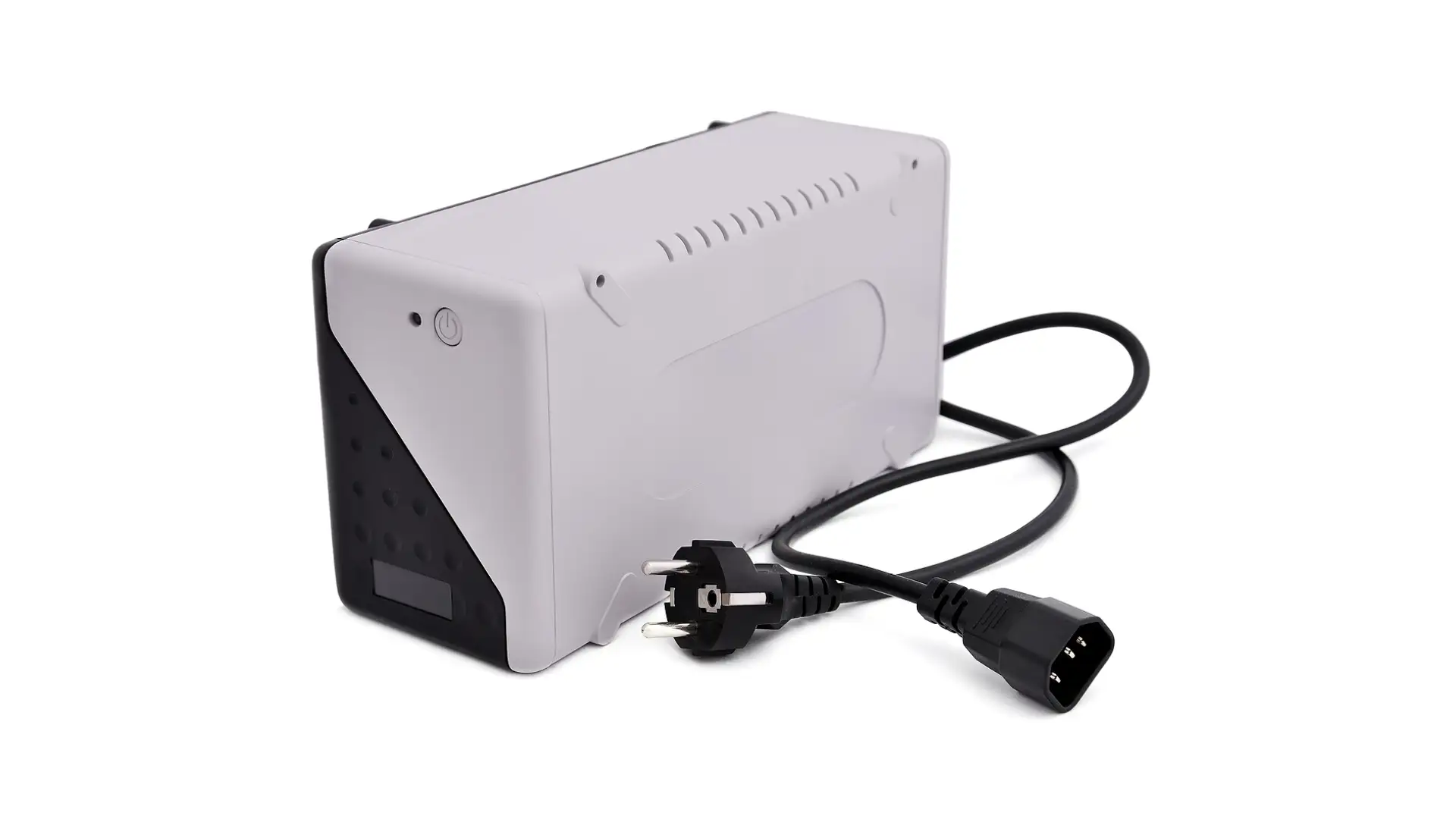
Uninterruptible Power Supply UPS Battery Suppliers: Choosing the Right Partner for Your Power Backup Needs
Ensuring a constant and reliable power supply is absolutely vital in both my personal and professional life. Power interruptions can throw a wrench into my daily routines, disrupt work operations, potentially lead to the loss of important data, and even result in financial setbacks. That's why I've come to recognize the absolute importance of Uninterruptible Power Supply (UPS) systems, with their core component being none other than high-quality batteries.
In this extensive guide, I want to take a deep dive into the realm of UPS battery suppliers. I believe that choosing the right partner for my power backup needs is not just a decision; it's a crucial investment in my peace of mind and uninterrupted productivity. So, let's explore the essential factors that I should keep in mind when selecting the perfect UPS battery suppliers to ensure that I'm always powered up when I need it the most.
The Importance of Reliable UPS Batteries
In today's technology-driven world, the significance of reliable Uninterruptible Power Supply (UPS) batteries cannot be overstated. These critical components play a pivotal role in safeguarding businesses and individuals against the adverse effects of power disruptions. Let's delve deeper into why dependable UPS batteries are of utmost importance:
Data Protection
In an age where data serves as the lifeblood of numerous organizations, ensuring its integrity and availability is paramount. UPS batteries serve as the first line of defense against power interruptions. They provide a crucial window of time for critical systems to save data and shut down properly during an outage, thereby preventing data corruption and loss. This not only preserves valuable information but also safeguards a company's reputation and compliance with data protection regulations.
Business Continuity
Downtime resulting from power outages can have severe financial consequences for businesses. Reliable UPS batteries are the linchpin of business continuity planning. They ensure that essential equipment, such as servers and networking devices, continues to operate seamlessly during power disruptions. This uninterrupted functionality enables businesses to serve their customers, process transactions, and maintain productivity, even in the face of adverse power conditions.
Equipment Protection
Sudden power surges, voltage spikes, and fluctuations can wreak havoc on sensitive electronic equipment, including computers, servers, and telecommunications systems. UPS batteries act as a protective barrier by regulating voltage and providing a stable power supply. This not only extends the lifespan of valuable devices but also minimizes the risk of costly equipment damage and downtime.
Peace of Mind
Beyond the tangible benefits, reliable UPS systems with dependable batteries offer a priceless sense of peace and security. Knowing that your critical systems are shielded against power interruptions provides confidence and tranquility in an often unpredictable world. This peace of mind can improve overall workplace morale and reduce the stress and anxiety associated with potential power-related disasters.
Key Considerations When Choosing UPS Battery Suppliers
Selecting the right UPS battery suppliers involves careful consideration of several factors. Let's explore these considerations in detail:
Lithium-Ion Batteries
It is a growing choice for UPS battery suppliers as they have higher reliability than lead acid or nickel-cadmium batteries. They are also smaller, lighter and faster charging than lead-acid batteries, as well as have a longer service life.
In addition, they are safer than lead-acid batteries because of built-in monitoring and management systems that monitor each individual cell to identify any issues or changes in performance. This helps ensure the batteries remain in tip-top shape and reduces the number of battery failures.
However, it’s important to note that while lithium-ion batteries have a lot of benefits, they can cause problems with thermal runaway. This is an issue that occurs only in a small percentage of batteries, but it can cause the battery to melt and burst into flames.
As a result, it is important to follow all safety precautions and regulations when using a lithium-ion battery. It is also recommended to use only a qualified UPS battery suppliers that can provide warranty and service for the entire life of your UPS battery system.
There are a variety of different Lithium-Ion battery chemistries available. These include lithium ion manganese oxide, lithium iron phosphate, and LiFePO4.
While all of these chemistries have a similar capacity, they differ in their chemical stability and safety. One of the safest chemistries is Lithium-Phosphate (LiFePO4), which is very difficult to ignite in the event of mishandling or failure.
These chemistries are also more environmentally friendly than others, because they are less toxic and are more easily recycled after their service life. They also have a higher energy density, which means they can store more power in less space than other chemistries.
A UPS battery is a good option for businesses that need power protection during outages, but may not have the room or budget to invest in a large generator. They can be used to power critical medical equipment in hospitals or surveillance cameras in a bank.
There are many UPS battery suppliers that offer Lithium-Ion batteries. These are more expensive than lead-acid or nickel-cadmium batteries, but they do offer a more reliable and longer lifespan. They are also much smaller and lighter than other battery types, which makes them more space-efficient. They are also much quicker to recharge than other types of batteries, which helps reduce costs.
Lead-Acid Batteries

It have been the standard of power supply in uninterruptible power systems (UPS) for decades. They have a proven track record for reliability and are a cost-effective choice in large power applications where weight is not the primary concern.
These batteries are made up of lead dioxide for the cathode and a mixture of sulfuric acid as an electrolyte. They can be used in a wide range of applications, including electric vehicles and heavy-duty tools.
They also offer high voltage for their size, which makes them ideal for starting motor vehicles. However, you must be careful to charge them frequently without overcharging them. This can cause the electrolyte to break down and will result in your battery becoming unusable.
The most common type of lead-acid battery is the sealed, valve-regulated lead-acid (VRLA) battery. These batteries are typically sealed with polypropylene plastic, to prevent any leakage of the acid. In addition, they have a valve that releases the gas pressure inside of them when it rises too high.
VRLA batteries are known for their reliability, and they generally have a lifespan of five years or more. They can be hot-swappable, which can make them convenient for maintenance and replacement.
Another popular subtype of VRLA batteries is the gel cell, which uses a mixture of sulfuric acid and pyrogenic silica to prevent damage from rough handling. The battery is also known for its high tolerance to vibrations.
These batteries have a longer lifespan than other types of lead-acid batteries, but they are more expensive. They are also less effective at discharging quickly, which means they can only deliver about 60% of their capacity in a short amount of time.
Lead-acid batteries can also become dangerous if they are overcharged. Overcharging can cause the electrolyte to break apart, which is a very corrosive process that can cause severe injury and damage.
Lithium-ion batteries are an emerging technology that can address many of the concerns of traditional lead-acid UPS batteries. They are more reliable, lighter, and have faster charge times than their traditional counterparts. They also have a long service life that can more than double the lifespan of their lead-acid equivalents.
Valve-Regulated Lead-Acid (VRLA) Batteries
Valve-Regulated Lead-Acid (VRLA) Batteries: VRLA batteries represent a prominent category of rechargeable batteries widely employed in various applications, with a notable presence in Uninterruptible Power Supply (UPS) systems. These batteries come in two primary variants: Absorbent Glass Mat (AGM) batteries and Gel batteries, each possessing distinct characteristics and advantages.
AGM batteries, one of the VRLA subtypes, are engineered with a unique construction. They contain a highly porous glass fiber mat separator that efficiently holds the electrolyte close to the battery plates. This design not only enhances the battery's energy density but also minimizes the risk of acid leakage, making AGM batteries spill-proof. They are ideally suited for applications where minimal maintenance is desired, as they do not require regular watering or electrolyte level checks.
Gel batteries, on the other hand, employ a gelified electrolyte that immobilizes the sulfuric acid within the battery. This gel electrolyte prevents leakage, enhancing safety and making them an ideal choice for applications where safety is paramount. Gel batteries also exhibit excellent resistance to vibration, shock, and deep discharges, which makes them suitable for demanding environments.
One of the notable advantages of VRLA batteries, irrespective of subtype, is their maintenance-free nature. Unlike traditional flooded lead-acid batteries, VRLA batteries do not require the periodic addition of water to the cells, simplifying operation and reducing the risk of human error.
Furthermore, VRLA batteries are known for their relatively long lifespan when properly maintained. With appropriate care and charging practices, VRLA batteries can last for several years, making them a cost-effective choice for many users.
While VRLA batteries are versatile and reliable, they are particularly well-suited for smaller-scale applications due to their compact size and ease of installation. In UPS systems, where backup power is essential to maintain critical operations during power outages, VRLA batteries offer a dependable energy source with minimal space requirements.
Expansion Batteries
Uninterruptible Power Supplies (UPSs) store electricity in batteries to supply power to sensitive equipment when the power goes out. Battery-operated UPSs are used in hospitals, data centers and other critical facilities to keep electrical devices running.
There are a number of types of storage batteries that are used in UPSs. Some are flooded cells or valve-regulated lead acid (VRLA) batteries, while others are lithium-ion or nickel cadmium.
Currently, VRLAs are the most common type of battery used in UPSs, but there are some advantages to using Li-Ion batteries. For starters, they provide much higher energy and power density than VRLAs. They also take up less space, which means that customers can install the system in smaller spaces.
Another advantage of lithium-ion batteries is their ability to charge very quickly and at very high capacity. This helps the UPS to function more efficiently.
The use of lithium-ion batteries is expected to fuel growth in the UPS battery market. This is because of the rising demand for mission-critical data centers and industries that need UPS solutions that are highly reliable, safe and offer superior performance.
Additionally, the use of UPSs in telecommunications and utilities is also increasing. This is because the UPS can help to improve network availability and provide uninterrupted power.
Finally, the use of UPSs in residential environments is also growing. These systems are often used to provide backup power for electronic devices, such as TVs, computers, and phones.
Expansion Batteries are a type of storage battery that is used in UPSs to provide extra power when the main batteries are depleted. They can be installed in the back of the UPS or placed externally.
Most expansion batteries have a low voltage rating so that the inverter can convert the line voltage to a slightly higher battery charging voltage. This makes the battery more tolerant to temperature changes and allows it to be charged at lower temperatures, which can increase the lifespan of the batteries.
UPS Battery Maintenance
![]()
UPS batteries are a critical part of every Uninterruptible Power Supply (UPS) system. They act as a secondary source of electricity, so your computers and other devices can be saved in the event of a commercial power outage. These batteries should be properly maintained and monitored to ensure their long-term performance and safety.
Maintaining your UPS Battery Suppliers system can help prevent downtime, protect your investment and reduce costs. It will also allow you to proactively identify potential problems before they cause serious, irreversible damage to your systems and your business.
Typically, a maintenance schedule should be based on the manufacturer’s recommended guidelines and include regular inspections of all battery, rack, cabinet and terminal equipment. These inspections should be performed by personnel trained in UPS maintenance.
In addition to these standard inspections, it is a good idea to regularly conduct thermal scans of electrical connections. These tests can reveal if any of your electrical connections are generating too much heat, which could be the first indicator of trouble.
Batteries are designed to operate within a specific range of temperature and should not be placed in environments that exceed this temperature. Each 8-10degC increase in temperature significantly reduces the life of a battery.
Top UPS Battery Suppliers
When it comes to selecting the right UPS battery suppliers, making an informed choice is paramount. To aid you in this decision-making process, let's delve into a selection of top UPS battery suppliers renowned for their quality products and exceptional services:
- APC by Schneider Electric: Schneider Electric, a global powerhouse in energy management and automation, boasts a subsidiary known as APC that stands as a beacon of reliability in the UPS battery market. APC offers a diverse array of UPS systems and batteries, making them a one-stop solution for businesses and individuals. Their reputation for innovation and technological prowess is matched only by their comprehensive support services. APC provides battery options ranging from Valve-Regulated Lead-Acid (VRLA) to lithium-ion, accommodating a wide spectrum of needs.
- Eaton: Eaton is yet another heavyweight in the UPS Battery Suppliers arena. Renowned for their commitment to quality and efficiency, Eaton provides an extensive selection of batteries, including VRLA and lithium-ion variants. Their robust backup solutions find applications across diverse industries, from data centers to healthcare facilities. With Eaton, you can trust in the reliability of your power protection.
- Vertiv: Formerly known as Emerson Network Power, Vertiv specializes in critical infrastructure solutions, including UPS systems and batteries. They offer a range of batteries meticulously designed for reliability and prolonged service life, ensuring uninterrupted business continuity. Vertiv's profound expertise in power management positions them as a trusted and dependable supplier.
- CyberPower: For those seeking cost-effective UPS solutions without compromising on reliability, CyberPower is an appealing choice. While their offerings may not cater to large-scale applications, they excel in providing dependable UPS batteries suitable for home and small business use. CyberPower's commitment to affordability makes them a preferred option for budget-conscious consumers.
- Tripp Lite: Tripp Lite has carved out a strong reputation as a supplier of power protection and connectivity solutions. They offer a wide spectrum of UPS systems and batteries, encompassing VRLA and lithium-ion choices. What sets Tripp Lite apart is their unwavering dedication to customer support and the delivery of quality products. When you choose Tripp Lite, you're selecting a reliable partner in safeguarding your critical equipment and data.
Conclusion
Selecting the right UPS Battery Suppliers is a crucial decision for ensuring uninterrupted power supply and protecting your valuable equipment. Consider factors such as battery types, capacity, reliability, compatibility, and environmental considerations when making your choice. Additionally, explore the offerings of reputable suppliers like APC by Schneider Electric, Eaton, Vertiv, CyberPower, and Tripp Lite to find the best fit for your specific needs.
Investing in high-quality UPS batteries and partnering with a reliable supplier is an investment in the continuity and reliability of your operations. By making an informed choice, you can enjoy peace of mind knowing that your power backup needs are in capable hands.
Sources
https://www.energy.gov/femp/purchasing-energy-efficient-uninterruptible-power-supplies
https://www.usaid.gov/energy/powering-health/system-components/uninterruptible-power-supplies
continue reading
Related Posts
Uninterrupted Power Supply For Computer In today’s fast-paced and digitally […]
Uninterruptible Power Supply For TV In the digital age, our […]
Uninterruptable Power Supply Company In my daily life, both personally […]



